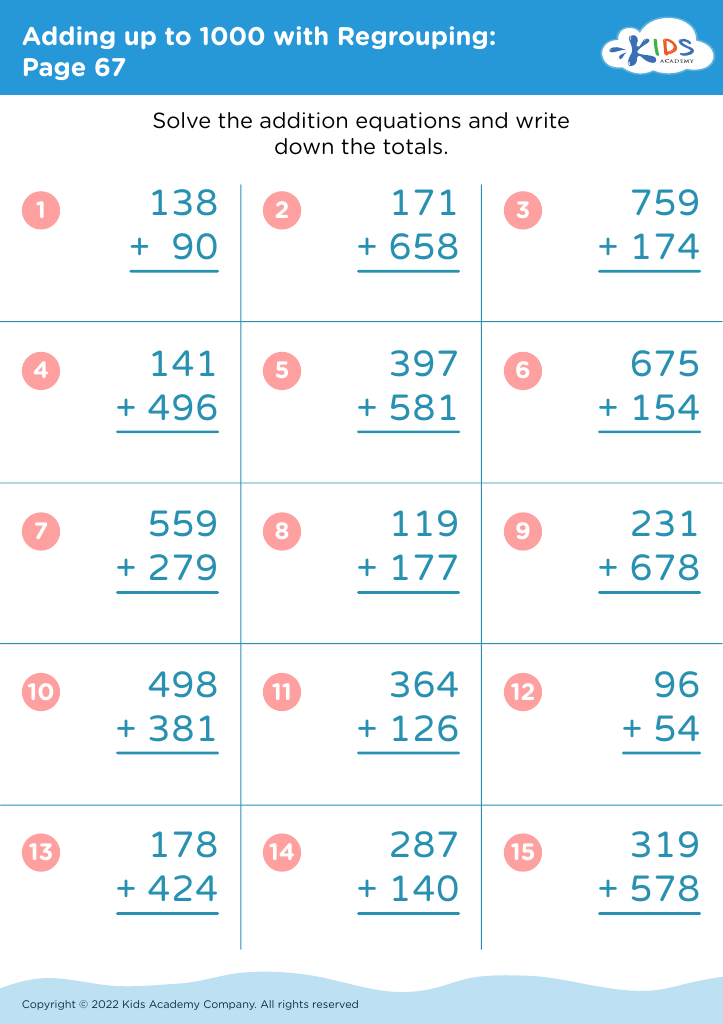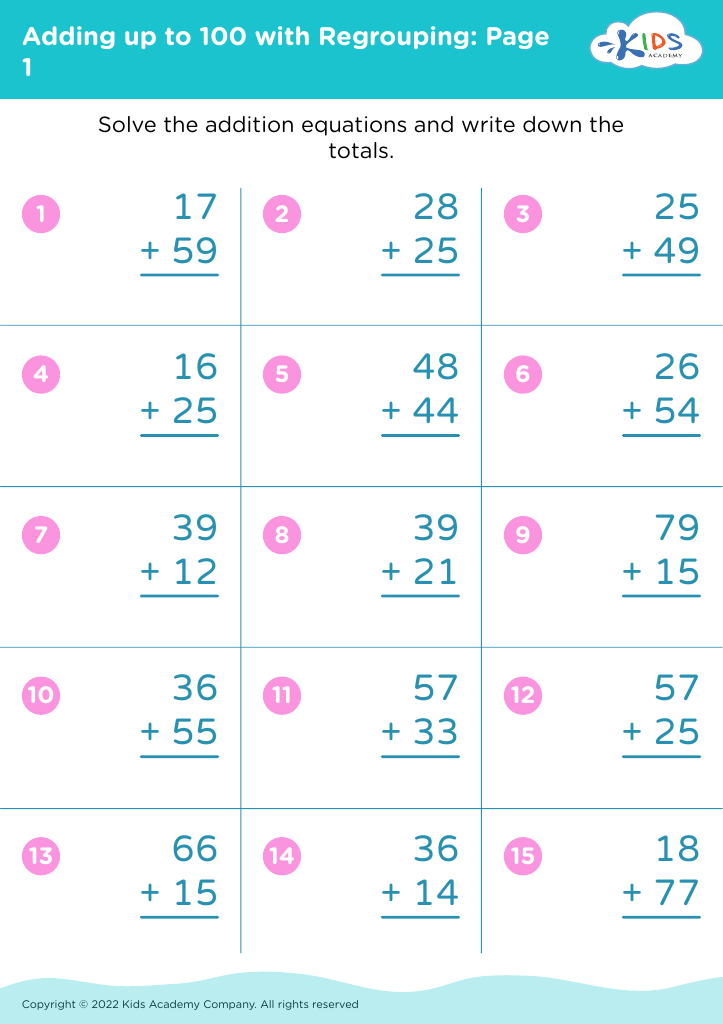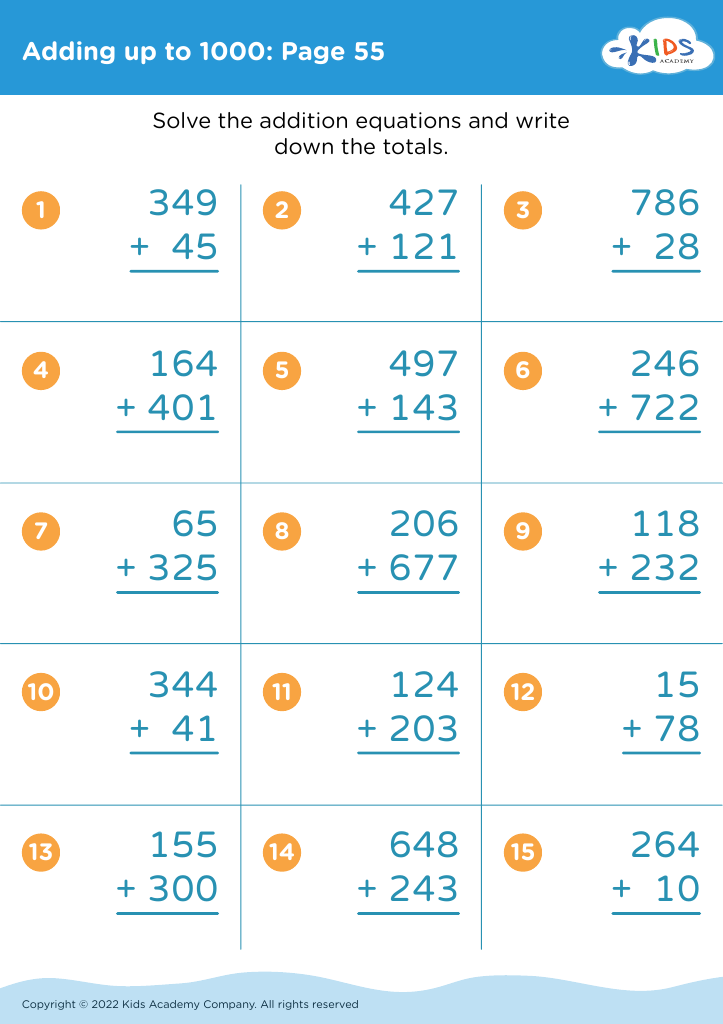Logical thinking development Addition Worksheets for Ages 6-8
8 filtered results
-
From - To
Boost your child's logical thinking abilities with our engaging Addition Worksheets, specially designed for ages 6-8. These worksheets provide a fun and interactive way for young learners to practice their addition skills while developing critical thinking capabilities. Each activity challenges children to solve problems, recognize patterns, and apply logic in varied contexts, making math more enjoyable and accessible. Our meticulously crafted exercises encourage creativity and flexibility in problem-solving, laying a strong foundation for future mathematical success. Equip your child with the tools they need to thrive in math and beyond—explore our collection of addition worksheets today and watch them grow!
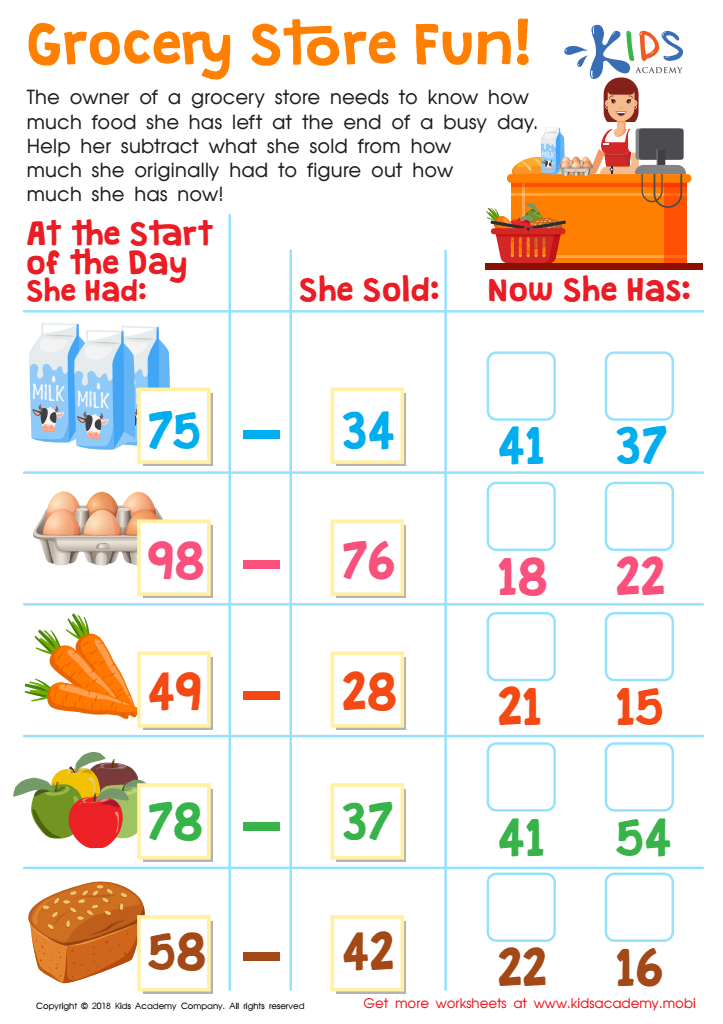

Grocery Store Fun! Worksheet
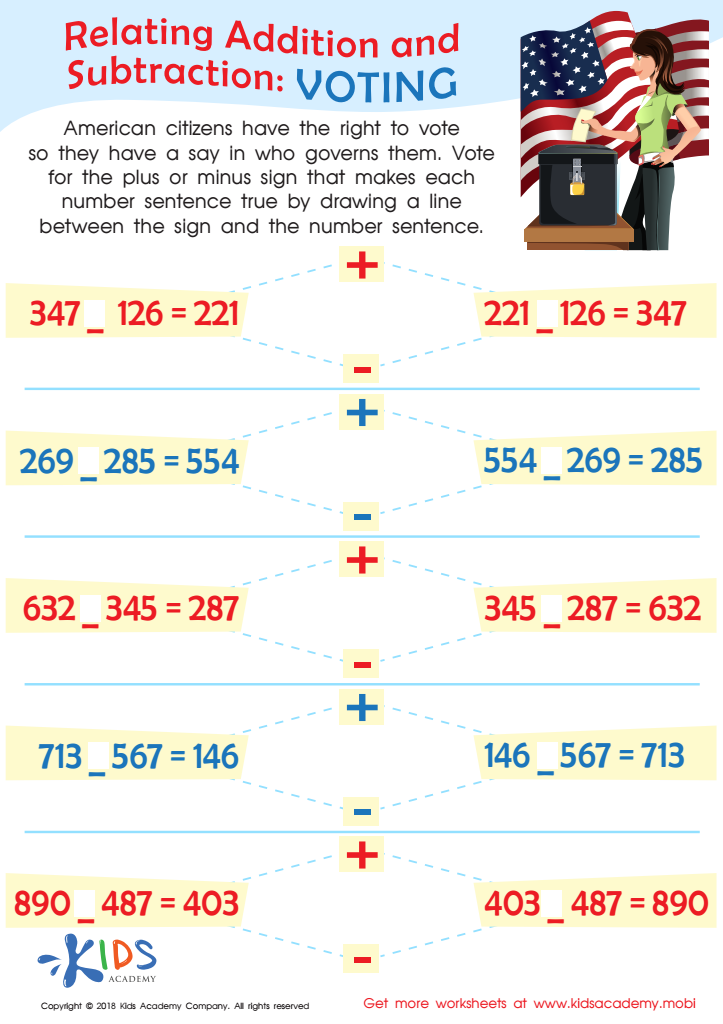

Voting Worksheet


Tricky Problems Worksheet: Part 2
Logical thinking is vital for children aged 6-8, and parents and teachers play an important role in nurturing this skill, especially in the realm of addition. At this developmental stage, children are beginning to grasp abstract concepts and improve their ability to reason through problems.
Logical thinking enhances their mathematical understanding, enabling them to not only perform addition but also to comprehend its applications in real-life scenarios. This foundational skill fosters critical thinking as they analyze, evaluate, and solve problems. For example, understanding number patterns and how to influence them lays the groundwork for more complex mathematical operations in the future, such as subtraction, multiplication, and division.
Moreover, children who develop strong logical thinking abilities are often better equipped to face challenges both in academic settings and everyday life. This skill promotes persistence and resilience, characteristics necessary for lifelong learning and growth.
Engaging children in fun, interactive addition games, puzzles, and problem-solving activities encourages their logical reasoning and keeps them motivated. By prioritizing logical thinking development in addition, parents and teachers not only enhance their child's math skills but also contribute to overall cognitive development that benefits them in various aspects of life.
 Assign to My Students
Assign to My Students

